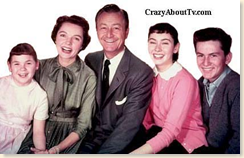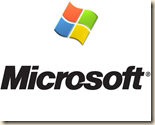Quote of the day:
An ignorant person is one who doesn't know what you have just found out. - Will Rogers
^^^^^^^^^^^^^^^^^^^^^^^^^^^^^^^^^^^^^^^
I want to share an article posted on SERMO by it's creator,
Dan Palestrant M.D. (give this link a moment to load, and then click on the video window...it should open in iTunes it is an iTunes video cast
click to JOIN LICENSED PHYSICIANS ONLY, all applications are 'vetted'.
Please excuse the length of the quote, it is included since SERMO is a protected secure website accessible only to licensed physicians.
Those of you who are physicians should JOIN
The pictures are mine, inserted and are not part of the original posting. (all that plain text gives me nystagmus, and I'm a picture guy.)
From The Founder: Knowledge is (Still) Power
I'd like to introduce a concept called information asymmetry.
Exchanges, whether it is swapping ideas in a community like ours, or goods and services in a marketplace, always work best when the information held by both parties is symmetrical. Both parties need to be on an equal footing for the information exchange to be fair and mutually beneficial. In economic theory, this is referred to as how "perfect" your information is. As such, it makes sense that the party that has the "more perfect" information has an advantage. In any business transaction (such as when buying a car) if the seller knows something that the buyer does not, there is an information asymmetry and therefore an intrinsic disadvantage for one of the parties (hence the prevalence of Lemon Laws).
The Rise of Asymmetry in Medicine
As physicians, we combat information asymmetries by sharing insights from one another and benefitting from each other's collective experiences. However, the shift towards outpatient medicine, where physicians no longer enjoy the collective gathering places of the doctor's lounge, grand rounds, or even the nursing station has left physicians "solo" in operating our practices. Add to this the increasing time pressures that have caused us to sever other ties, and it is no small wonder that physicians feel a growing sense of loneliness and isolation. This isolation has compounded the information asymmetry for physicians and we are unable to benefit from each other's insights in advancing the collective good of our profession. The bottom line is that "hearing" each others' voices is a necessary prerequisite before we can have a collective voice and overcome information asymmetry.
The impact of information Asymmetry on our Earnings
Isolation and information asymmetry have had a dire financial impact on physicians. They have allowed critical changes over the past 25 years to the financial mechanisms that underpin our profession. As our isolation has become more acute, the parties that we must exchange our goods and services through (ie insurance companies) have not stood still. They have benefitted from better organization, better technology and ultimately better information. This did not happen by accident.
Insurance companies and government agencies have leveraged information that we don't have-around costs for drugs and procedures and treatments for example-to gain advantages over physicians. Rather than a perpetuating a system where a physician's time, efforts, and skills are rewarded based on market value, payers have incredible advantage because their information is more "perfect". How is it that demand for physician services is exploding and physician supply is flat to declining (as physicians are retiring earlier and increasingly opting out of primary care) and yet reimbursement and physician earnings continue to plummet? Focus on the asymmetry of information.
Information asymmetries have features that can make them very attractive (if you are on the right side of the asymmetry). They perpetuate positions of strength or authority (they are also threatened by anything that creates a level playing field or meritocracy), while creating great leverage for the party with the more perfect information. Knowledge, or in this case "information", is indeed power.
Sermo's Role in Regaining Information Symmetry…and Physician Influence
From the moment it launched, Sermo has been a medium physicians have used to overcome information asymmetry in our practices. Indeed, the information is perfectly symmetrical among physicians within the Sermo community. Given a level playing field, new insights, new methods, and new strategies have emerged through Sermo. Quite to my shock, we are starting to erode that information asymmetry that had appeared so daunting, so destructive, to our profession. The evidence of this abounds. New clinical insights that never would have been given their due are routinely discussed in Sermo. Difficult patient situations, clinical dilemmas, and most certainly some of the most vexing economic questions that face physicians are far less daunting when the collective brainpower of this community can be applied. The axiom has held true: No one of us is smarter than all of us.
Creating a Healthcare Information Exchange 
Very quickly we learned that the knowledge, and consensus of physicians on Sermo also has tremendous value to outside entities. The Sermo Team has worked to build a business model that enables physicians to project our collective voice on every subject to outside entities. New modes of exchange like AskRx, Clinical Trials, and Earn HotSpots have created an entirely new paradigm for Exchange with outsiders that need to understand physician perspective to advance their businesses. The community is proving incredibly adept at engaging outside entities on this community's terms and even at changing the rules and forcing outside entities to reevaluate their practices. This Exchange mechanism has unlocked the power to regain our influence over the players that control the decisions, investments and policies that shape the healthcare landscape in this country.
This community has been both consistent and emphatic in making sure its voice is heard outside Sermo,






















